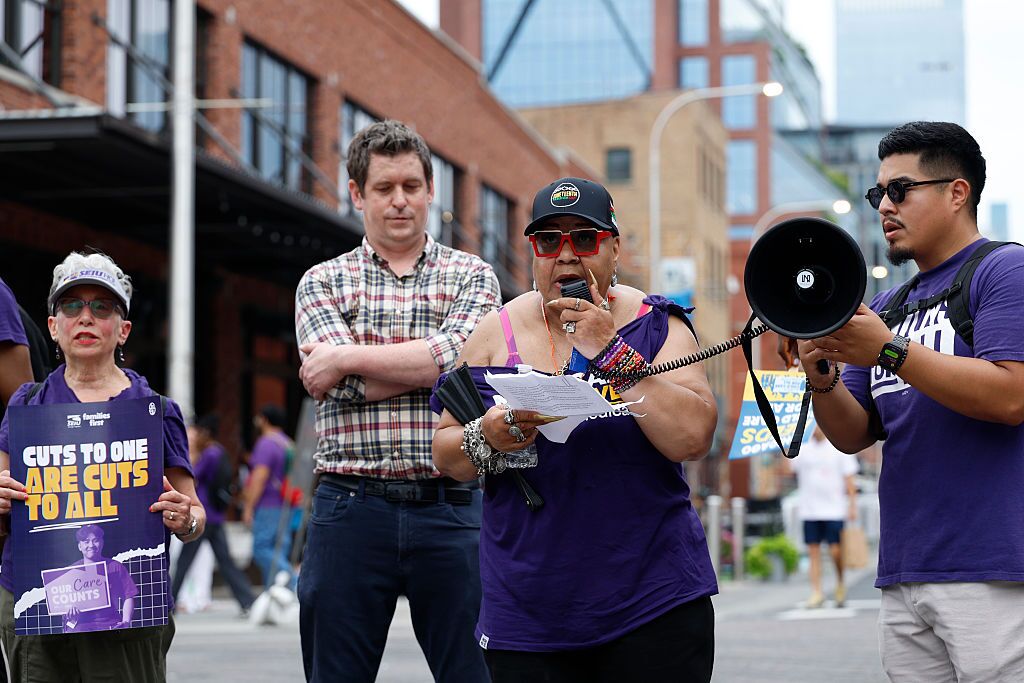Care workers were deemed ‘essential’ during the COVID-19 pandemic. Now, the Trump Department of Labor wants to strip away their most basic wage protections.
Imagine Angela, a home health aide worker in Georgia who spends her days helping elderly and disabled clients eat, bathe and manage their medications for a national home healthcare agency employing over 30,000 workers in 25 states. She works 10-hour days, often six days a week, and—thanks to a 2015 rule introduced by Obama’s Department of Labor—earns overtime.
But under a Trump administration newly proposed rule, she could legally lose overtime protections and even be paid less than the federal minimum wage. The law that once protected her paycheck would be eliminated as “obsolete.”
This isn’t just theoretical. The Trump administration’s Department of Labor recently proposed a new rule that would directly take earnings away from the more than 1.5 million home care workers in the United States, more than 80 percent women, and their families.
Between 2019 and 2040, the population of adults ages 65 and older is expected to balloon from 54 million people to nearly 81 million people, comprising an estimated 22 percent of the U.S. population. That means that the direct care workforce is projected to grow at a faster rate than any other occupation over the next decade. These workers were deemed “essential” during the COVID-19 pandemic. Now, the Trump Department of Labor wants to strip away their most basic wage protections.
President Trump’s secretary of labor has defended the rollback as clearing away “outdated regulations” to give workers more “freedom and purchasing power.” In reality, the Obama rule addressed an interpretation that was outdated in the worst way—written nearly a century ago, it excluded whole categories of workers, predominantly women and particularly, women of color.
The Obama administration rightly interpreted an exemption under the Fair Labor Standards Act, which guarantees minimum wage and overtime protections to most workers, to ensure that home care workers employed by third parties—such as large national agencies—received basic minimum wage and overtime protections. In the years since the rule was enacted, private equity firms have bought up an increasing share of home care agencies, illustrating that these firms can still make a hefty profit, even when required to provide basic wage protections.
President Trump campaigned on helping “forgotten” American workers. But his attempts to roll back laws protecting them tells a different story.
Currently, one in six live below the federal poverty line. If the 2015 rule is rescinded, these workers wouldn’t even be required to be paid $7.25 under federal law. Meanwhile, as profits increase, the executives at home health companies continue to be paid high salaries. It’s the same reverse-Robin Hood scenario we’ve seen before by Trump: taking from those who have the least to give to those who have the most.
If the 2015 rule is rescinded, these workers wouldn’t even be required to be paid $7.25 under federal law.

I’ve seen firsthand what’s at stake. As solicitor of labor, I led cases that recovered millions in stolen wages from health care companies that broke the law. During the Biden administration, the Department of Labor’s Wage and Hour Division recovered over $148 million from healthcare companies in back wages and fines. That money went straight back to workers like Angela.
If President Trump and his labor secretary truly wanted to help America’s hardworking families, in an industry dominated by women, they would keep the current home care rule in place and strengthen enforcement against wage theft. Rolling back these protections isn’t modernization—it’s choosing corporations and their profits over working women.
Great Job Seema Nanda & the Team @ Ms. Magazine Source link for sharing this story.




